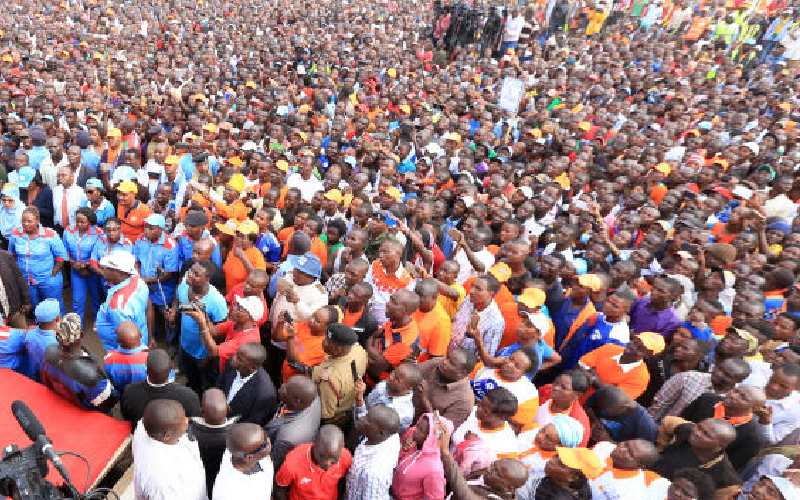×
The Standard e-Paper
Join Thousands Daily

A campaign rally in Kitengala, Kajiado County, on June 20, 2017. [Dennis Kavisu]
Among activities that humans engage in is deciding who governs where and when, in what ways, for what purpose and outcome. That decision process is “politics” which has two objectives; distributing available resources and increasing resources within a political entity. Increasing resources is either by stimulating internal wealth-creating activities or by raiding the wealth of neighbours through activities such as cattle rustling.